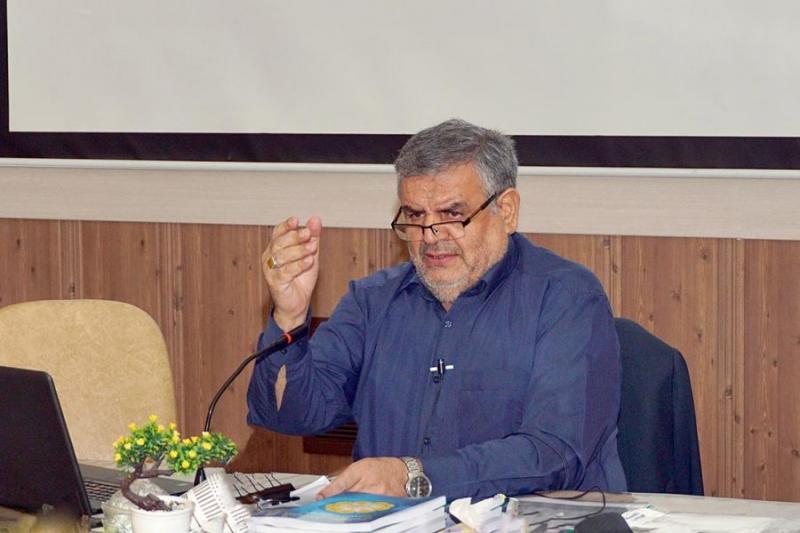
The first workshop of managers and experts of the organization for Educational Research and Planning was held after the new head of the organization was introduced; the workshop was called “the model of monotheistic Innatism in the curriculum in the curriculum of education and learning”.
Dr. Hassan Maleki stated that the purpose of this workshop is to start the change of the organization in line with the passed documents and added: “this workshop aims to bring us closer to each other. If we feel the need to change in education, we should also know that evolution will be reached with us gathering and exchanging views."
“Curriculum is defined based on three approaches” Maleki said in the beginning. “First; curriculum is considered as the educational content. In this view, the curriculum is the same as the ideology-based content, and that ideology believes human cultural heritage is the heart of science, and as science is taught to the generations, so is cultural heritage. While, the interests and needs of students are not considered because it focuses on the content and topics.
“Second; those who consider the curriculum as an experience whose main scholar is John Dewey. The ideology behind this view is progressivism. The experience, knowledge, and one's interaction with the environment is fundamental. This view is highly supports by pragmatists.
He noted the third category provided by recent scholars, saying this view sees curriculum as a design. “It is called the learning scheme, and they are against progressivism. In this view, it is believed that the curriculum is a plan for learning, i.e. the curriculum has elements that are different which also have different views.”
He concluded that “monotheistic Innatism” in the curriculum, means a new approach that should be reflected in Iran’s curricula.
“In the “monotheistic Innatism” curriculum model, the student's innate, tendencies, and abilities are the basis for determining the elements of the curriculum and are of great importance. The structure of the instructional design is also based on a triangle of innate tendency, cognition and ability.”
Dr Maleki added: “The curriculum is born with a certain ideology, but as it continues multiple ideologies are also involved. That is why, we state that we have a different ideology and therefore a different curriculum. Our certain ideology and philosophy gives us the right to talk about a new curriculum.”
Referring to the decision-making process, the head of OERP noted: “There are two levels in decision making: the general level that oversees decision-making on the basis of values and the specific level that refers to the technical decision-making for planning and applying elements. These two levels are totally dependent.”
Dr. Maleki noted that the difficulty is having "internal consistency" in the structure of the curriculum, which according to him will have great effects on educating competent students.
“Historically, the three main sources of information for planning are: The written content, the learner, and the community that I believe all are emerging from the nature of human.”
“Monotheistic Innatism” curriculum considers the student's innate tendencies, cognitions, and abilities as the basis for determining the curriculum elements. The more accurate the analysis of nature, the easier it is to develop a curriculum; the head of OERP added.
Assessment of needs in Monotheistic Innatism involves:
• The innate and social needs
• Considering the ideals and realities as the basis for determining need
• Considering both aspects
• Prioritizing needs.

Add new comment